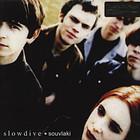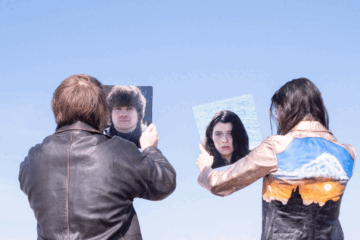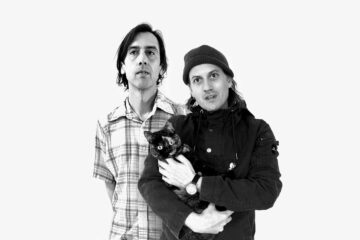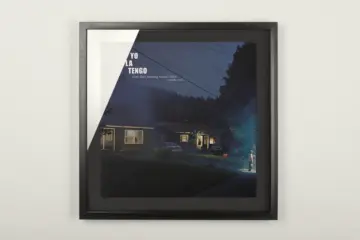»I hate Slowdive more than Hitler,« Richey Edwards of the Manic Street Preachers is reported to have remarked on one occasion. Which was a rather out there assertion even for the British music scene in the early 90s. These few words express contempt for a band that was until then considered a darling of the press: Slowdive formed in the late eighties, after Rachel Goswell and Neil Halstead had just left school. Together with percussionist Adrian Sell, soon to be replaced by Simon Scott, and guitarists Nick Chaplin and Christian Savill, they were the hot thing, one of the bands of the moment, as proven by two EPs. But almost everything changed with their début album.

Souvlaki
Slowdive received a smattering of positive reviews for »Just for a Day«, but the ridicule also set in. The record was a huge disappointment, according to British music journalists who were turning to grunge and Britpop at the time. In an interview with Drowned in Sound nearly twenty years later, drummer Simon Scott said, »It upset us because we were all teenagers at the time and couldn’t understand why people could get so outraged about our sound that they had to tell the NME or whatever that they wanted us dead.« In doing so, the band felt they were putting themselves on a pedestal which they didn’t even want to be on, as the band members said in various other interviews.
The band felt like they were on a pedestal they didn’t want to be on.
During their tour of Europe in 1992, the band started working on »Souvlaki« – which ended up being forty songs, which didn’t go down well with the Creation Records label boss. So, everything was back to square one. The band contacted Brian Eno on their return to the UK. They wanted him to take over the production, which Eno refused. Instead, he wanted to record with the band. One of Halstead’s most confusing experiences, leading to the song »Sing«. In general, all kinds of influences from ambient, dream pop and dub flowed into the sound on this album. The fact that Halstead and Goswell broke up during this period made for some very gruelling recording sessions. The result was an outstanding album, which was released on 1 June, 1993.
A constantly surging wave
On the ten songs, Slowdive drive their variant of shoegaze into such a unique sound that the whole record feels like a dense dream. Like a gigantic sunrise, »Souvlaki Space Station« looms over the listener, the guitars howling and buzzing, almost drowning out the overall rhythm. Multiple effects support the drums. »When The Sun Hits« sweeps it all further along the horizon, and the sky opens up. Yet always composed so that nothing comes across as obtrusive. »Souvlaki« does not demand anything. This album is just there, a sound so endlessly distant, so abstract and yet so close, so full of pain and love. »Dagger« marks the downbeat conclusion to the acoustic guitar on the album: »I thought I heard you whisper, it happens all the time.«
Today, »Souvlaki« counts as one of the classics of the genre, despite or perhaps precisely because of its many influences and different approaches, which ultimately evolve into a wave of sound – yet not a huge storm like many other bands, not a brute monster like on »Loveless« by My Bloody Valentine, but the soundtrack of an otherworldly moment full of details and emotions.
After their third album »Pygmalion«, which brought Slowdive even closer to ambient, their label dropped them. A break of almost twenty years followed, which Slowdive brought to an end with several festival performances, concerts and their fourth, self-titled record in the mid-2010s. »Souvlaki« was already considered a classic by then. A masterpiece for all time.









